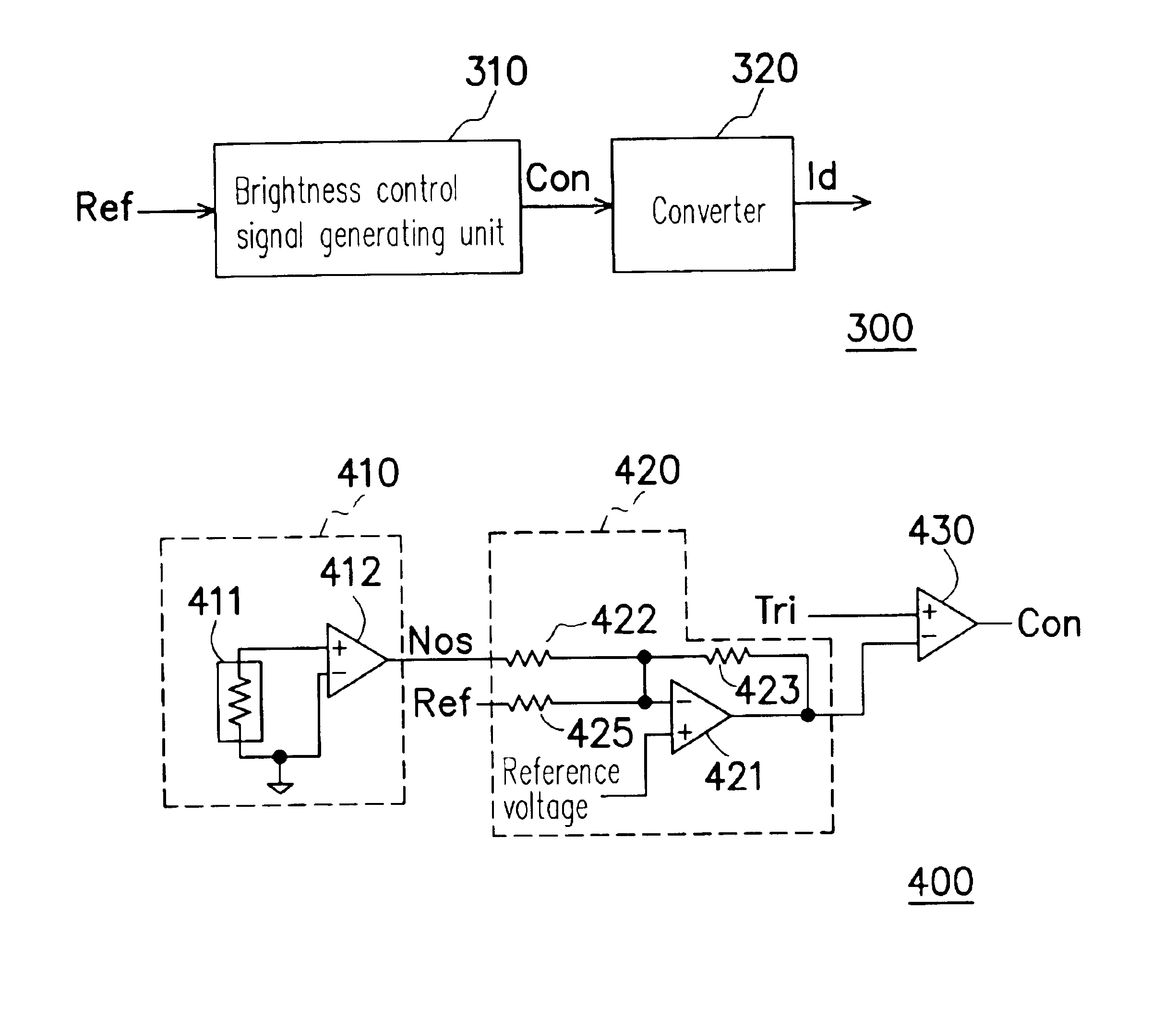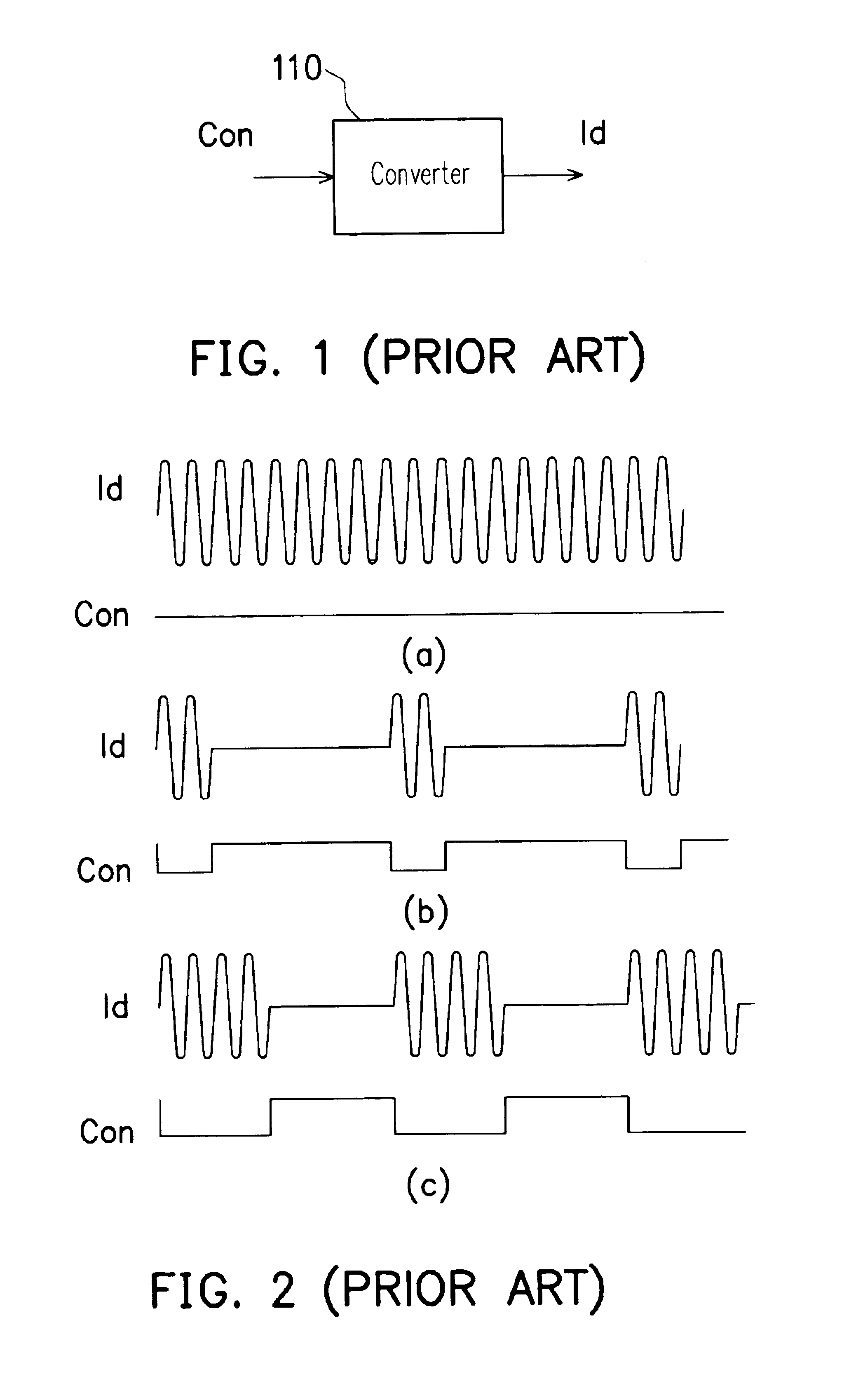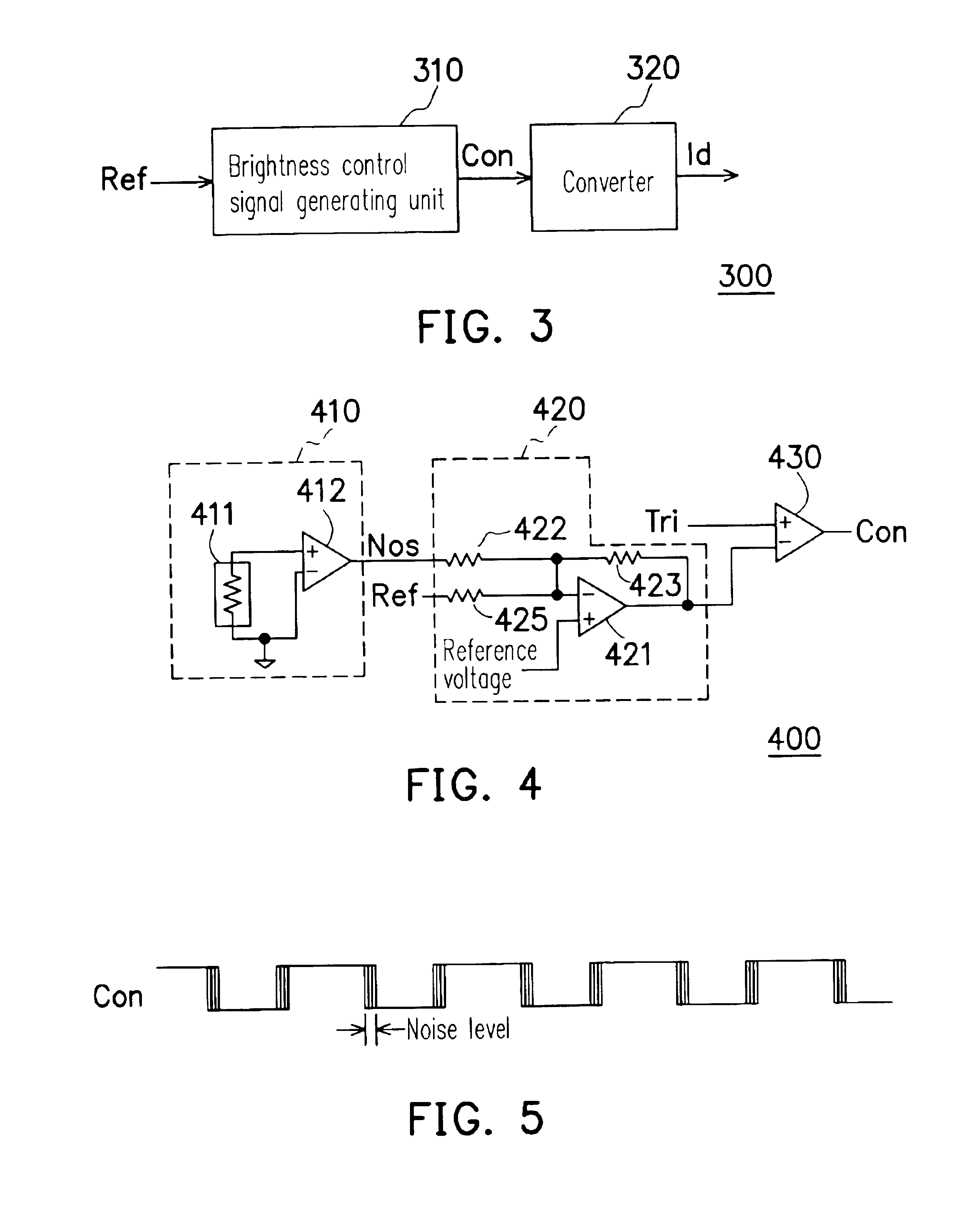Low-visual noise, jitterized pulse width modulation brightness control circuit
a pulse width modulation and low-visual noise technology, applied in the direction of automatic control, instruments, light sources, etc., can solve the problems of back light signal interference, glistening on the display, and requiring a higher cost, so as to reduce visual interference and low-visual noise pulse width modulation
- Summary
- Abstract
- Description
- Claims
- Application Information
AI Technical Summary
Benefits of technology
Problems solved by technology
Method used
Image
Examples
Embodiment Construction
[0027]FIG. 3 is a block diagram of the low visual noise, jitterized pulse width modulation brightness control circuit in accordance with a preferred embodiment of the present invention. The low visual noise, jitterized pulse width modulation brightness control circuit 300 is suitable for adjusting the brightness of a fluorescent lamp (not shown) in a liquid crystal display.
[0028]As shown in FIG. 3, the low visual noise, jitterized pulse width modulation brightness control circuit 300 includes a brightness control pulse signal generating unit 310 and an inverter 320. The brightness control pulse generating unit 310 receives a brightness adjusting signal Ref and generates a brightness control pulse signal Con in response to the brightness adjusting signal Ref. To prevent the visual interference due to adjustment of the current beam density, the brightness control pulse signal Con has a duty cycle or frequency varying in a predetermined range so that the brightness control pulse signal...
PUM
| Property | Measurement | Unit |
|---|---|---|
| frequency | aaaaa | aaaaa |
| brightness | aaaaa | aaaaa |
| frequency | aaaaa | aaaaa |
Abstract
Description
Claims
Application Information
 Login to View More
Login to View More - R&D
- Intellectual Property
- Life Sciences
- Materials
- Tech Scout
- Unparalleled Data Quality
- Higher Quality Content
- 60% Fewer Hallucinations
Browse by: Latest US Patents, China's latest patents, Technical Efficacy Thesaurus, Application Domain, Technology Topic, Popular Technical Reports.
© 2025 PatSnap. All rights reserved.Legal|Privacy policy|Modern Slavery Act Transparency Statement|Sitemap|About US| Contact US: help@patsnap.com



